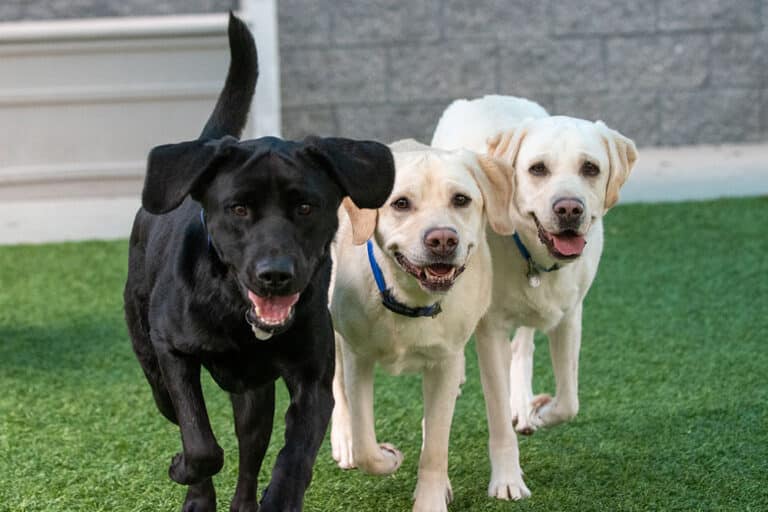
Adopting a dog is one of the most rewarding experiences, but it comes with a lot of responsibility. From choosing the right breed to understanding their daily needs, there’s a lot to think about before bringing a dog into your home. Whether you’re a first-time dog owner or looking to add another furry friend to your family, here are 40 essential things to consider when planning to Adopt a Dog
1. Choosing the Right Dog Breed
The first step in dog adoption is selecting a breed that fits your lifestyle. Consider factors like the dog’s energy level, grooming needs, and temperament. For example, active breeds like Border Collies require lots of exercise, while more laid-back dogs like Bulldogs may be a better fit for quieter households.
2. Financial Commitment of Dog Ownership
Owning a dog comes with both upfront and ongoing expenses. From purchasing food, toys, and grooming products to veterinary visits and pet insurance for dogs, it’s important to budget for your dog’s care. Make sure you’re financially prepared for the long-term commitment of dog ownership.
3. Find a Trusted Veterinarian
Before you adopt, research local veterinarians and ensure you have one that you can trust. Regular health check-ups and vaccinations are essential to your dog’s long-term well-being. Don’t forget to consider dog health and nutrition needs as part of this plan.
4. Emergency Care Preparedness
Accidents and illnesses happen. Know where your nearest emergency vet clinic is and have a plan in place for unexpected health issues. Be prepared for both minor and major medical situations, as they can arise at any time.
5. Dog-Proof Your Home
Dogs are curious creatures, so you’ll need to ensure your home is safe. Remove toxic plants, sharp objects, and keep electrical cords out of reach. Make sure your home is a secure environment for your new dog, creating an area where they can play and sleep safely.
6. ID Your Dog with a Tag and Microchip
One of the most important things you can do is ensure your dog has proper identification. An ID tag and microchip can help reunite you if your dog gets lost. This is an essential part of dog care essentials that should never be overlooked.
7. Dog Training and Socialization
Basic obedience training is crucial for all dogs. Whether you’re teaching your dog to sit, stay, or come, consistent dog training helps foster a strong bond between you and your dog. Socializing your dog with other pets and people is equally important for their emotional development.
8. Daily Exercise for Your Dog
All dogs need regular exercise. Depending on their breed, some may require long walks or runs, while others might be satisfied with shorter outings. Make sure you have the time and energy to meet your dog’s exercise needs. Exercise is also key to preventing behavioral issues.
9. Mental Stimulation is Key
Dogs need mental stimulation to stay happy and healthy. Puzzle toys, training, and interactive games can help keep your dog’s brain sharp. Without mental stimulation, dogs can become bored and develop bad habits.
10. Feed Your Dog a Balanced Diet
Nutrition is one of the cornerstones of your dog’s health. Make sure you feed them a high-quality diet based on their breed, size, and age. Consult your vet for dog health and nutrition advice to ensure your dog is getting the right nutrients.
11. Grooming Essentials
Depending on the breed, dog grooming requirements can vary. Regular brushing, bathing, and nail trimming are essential to your dog’s health and comfort. Grooming also helps build a bond between you and your dog.
12. Provide Chew Toys
Dogs love to chew, and if you don’t provide them with appropriate toys, they may chew on your furniture. Invest in durable chew toys to keep your dog entertained and safe. These toys are an essential part of dog care essentials.
13. Create a Comfortable Space
Every dog needs a space to call their own. Whether it’s a cozy bed or a crate, providing a safe, quiet space for your dog to retreat to is important for their well-being. Make sure their area is comfortable and free from distractions.
14. Time Commitment for Dog Care
Dogs require daily attention, including exercise, feeding, grooming, and affection. Make sure you have enough time to meet your dog’s needs before adopting. Dog ownership requires a significant amount of time and energy.
15. Travel Plans for Your Dog
Traveling with a dog requires some extra preparation. Plan how you’ll transport them safely, whether by car, plane, or public transportation. Always use a proper crate or harness to ensure your dog’s safety.
16. Choose the Right Bedding for Your Dog
A comfortable bed is essential for your dog’s health. Consider their size, sleeping habits, and any special needs when choosing a bed. A good bed can also help prevent joint issues, especially for larger breeds.
17. Secure Your Yard or Outdoor Space
If you have a yard, ensure it’s properly fenced to keep your dog safe. An escape-proof yard is important, especially for dogs that may try to dig or jump over fences. Create an area where your dog can safely roam and play.
18. Address Behavior Problems Early
Behavioral issues like barking, digging, and separation anxiety can arise in dogs. Address these issues early through dog training or professional help to prevent them from becoming serious problems.
19. Socialize Your Dog with Other Pets
If you have other pets, plan how they will interact with your new dog. Proper introductions and gradual socialization are key to fostering good relationships between your pets. Dog training and socialization are vital for peaceful cohabitation.
20. Consider Pet Insurance
Pet insurance for dogs can help reduce the cost of unexpected medical bills. Research different pet insurance plans to find one that fits your needs and budget. This is an important financial decision for any dog owner.
21. Watch for Dietary Restrictions or Health Concerns
Some dogs have specific dietary needs or health conditions. Be aware of any special requirements for your dog’s food and care, and consult your vet for guidance. Ensure that your dog’s dog health and nutrition plan supports their specific needs.
22. Preventive Health Care
Routine preventive care, including flea, tick, and worm treatments, is essential to keeping your dog healthy. Don’t forget about regular vaccinations as well. Preventive care helps avoid costly treatments down the line.
23. Understand Legal Requirements for Dog Ownership
Be sure to check local regulations regarding dog ownership. This may include licensing, leash laws, and noise ordinances that affect your dog’s care. Staying informed ensures you comply with the law and protect your dog’s rights.
24. Plan for Time Away from Home
If you travel frequently or work long hours, make arrangements for your dog when you’re not around. Dog sitters, boarding facilities, or asking a friend or family member for help can ensure your dog gets the care they need while you’re away.
25. Bonding with Your Dog
Spending quality time with your dog is essential for building a strong bond. Play, training, and just relaxing together can help form a deep connection. This will create a lifelong relationship based on trust and affection.
26. Adoption vs. Buying from a Breeder
Consider adopting a dog from a shelter to give a dog a second chance at life. Adoption is a great way to find a loving companion, but if you decide to purchase from a breeder, ensure they are reputable and responsible.
27. Leashes, Collars, and Harnesses
Choose the right leash, collar, or harness for your dog. Ensure they are comfortable and safe, and make sure they fit properly to avoid injuries. Your dog’s dog training can also be enhanced by selecting the proper walking equipment.
28. Puppy-Proof Your Home
Puppies are naturally curious and can get into trouble easily. Ensure that your home is safe by keeping dangerous objects and chemicals out of reach. This is an important part of dog care essentials when adopting a new pet.
29. Routine is Key
Dogs thrive on routine. Set regular times for feeding, walking, and bedtime to help your dog feel secure and well-adjusted. A predictable routine helps with dog training and socialization as well.
30. Be Aware of Toxic Foods and Plants
Certain foods and plants can be toxic to dogs. Familiarize yourself with these and make sure they’re out of reach to keep your dog safe. Avoid chocolate, grapes, and other common toxins that can harm your dog’s health.
31. Travel Safely with Your Dog
When traveling with your dog, safety is a top priority. Use pet seat belts, travel crates, or barriers to ensure your dog is secure during the journey. Always make your travel plans with your dog’s safety in mind.
32. Providing Mental Health Care
Just like humans, dogs can experience stress, anxiety, or depression. Pay attention to changes in their behavior and seek professional help if needed. Make sure your dog’s emotional well-being is part of your overall dog care essentials.
33. Know the Health Risks of Overfeeding
Obesity is a serious health issue for dogs. Make sure you’re not overfeeding your dog, and monitor their weight with regular vet check-ups. **Dog health and nutrition
** are intertwined with maintaining a healthy weight.
34. Proper Training
Invest in dog training classes, especially if you’re a first-time dog owner. A well-trained dog is happier and safer, which is essential for a long-lasting relationship.
35. Grooming Tools
Stock up on essential grooming tools like brushes, combs, and nail clippers to keep your dog clean and comfortable. Grooming is a crucial part of dog grooming tips and overall health care.
36. Keep Water Available at All Times
Make sure your dog always has access to fresh, clean water. Hydration is essential, especially after exercise or on warm days. Proper hydration is a key part of dog care essentials.
37. Adjust Feeding for Puppies and Senior Dogs
Puppies and senior dogs have unique dietary needs. Ensure you are feeding them the appropriate food for their life stage. Adjusting their diet will help with their growth and aging process.
38. Set Boundaries Early
Set clear boundaries for your dog early on, especially regarding which areas of the house are off-limits or where they should sleep. This is important for establishing a respectful relationship with your dog.
39. Patience and Love
Dogs require patience, love, and consistent care. Be prepared to invest in the long-term happiness of your dog, and enjoy every moment of your journey together.
40. Continually Educate Yourself
Dog ownership is a lifelong commitment. Continue learning about your dog’s needs and stay informed on the best practices for training, health, and care.
Final Thoughts on Dog Ownership
Adopting a dog is an exciting adventure, but it’s important to approach it with the right mindset and preparation. From financial commitment to time management, understanding the responsibilities of dog ownership will help ensure that your dog has a healthy, happy life. Follow these essential tips, and you’ll be on your way to becoming the best dog parent you can be!
dog adoption tips, pet dog ownership, and dog care essentials.







